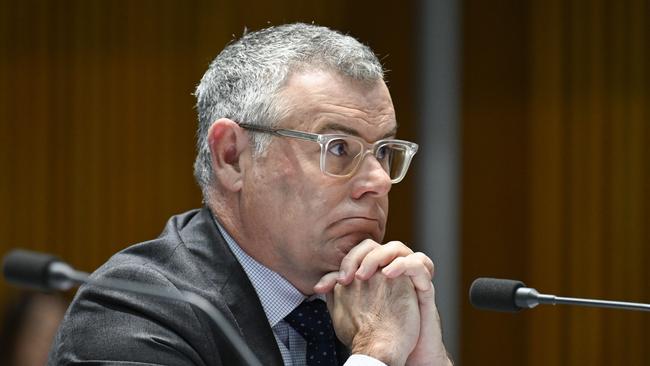Labor re-stacks FWC with union allies on election eve
The election eve move takes the number of union-aligned appointees to 21 in less than two years as the Albanese government unwinds the Coalition’s stacking of the tribunal.

Labor has moved on the eve of the federal election to further unwind the Coalition’s stacking of the nation’s workplace tribunal, making four more union-linked appointments that take the number of union-aligned appointees to 21 in less than two years.
After four rounds of union-linked appointments by Labor since March 2023, the government has reshaped the Fair Work Commission so its numbers are now almost evenly split between members from union and employer backgrounds.
However, a slim majority – 28 to 26 – of the commission’s members still come from the employer side as 26 of 27 permanent appointments by the previous Coalition government were linked to employers.
The latest appointments include the ACTU’s manager of industrial and legal, Trevor Clarke; the Mining and Energy Union national legal director, Adam Walkaden; and former union official Jessica Rogers, who has been a South Australian Employment Tribunal commissioner since 2023.
Maurice Blackburn principal Kamal Farouque, who has extensive experience in employment law and previously held senior roles with unions, has been appointed a deputy president of the commission.
Opposition employment spokeswoman Michaelia Cash said Workplace Relations Minister Murray Watt was continuing the tradition set by his predecessor, Tony Burke, of stacking the commission with “union mates” of the Albanese government.
“I’ve previously said Tony Burke was a gold medallist in delivering for Albo’s union mates,” she said. “It now appears Murray Watt wants to take the No.1 spot on the podium.’’
But Senator Watt scoffed at her claims, declaring Labor was “moving towards finally restoring balance after a decade of Coalition stacking”.
He said when Labor came to office in 2022, a “whopping 74 per cent of the tribunal represented an employer background”.
“Even for Senator Cash, it’s completely laughable for her to lecture the government on commission appointments, after she and her colleagues spent 10 years stacking it with failed Liberal Party MPs and employer representatives,” Senator Watt said.
“Rather than engaging in hypocritical commentary, Senator Cash would be better off telling Australians what more workplace laws the Coalition intends to repeal, if they are elected.”
Employers on Monday warned the latest union appointments risked the commission being subject to an ongoing “tit for-tat” where a future Coalition government would re-stack the tribunal with those from an employer background.
Australian Industry Group chief executive Innes Willox said the latest appointments must mark the end of the politicisation of the commission and a return to balanced, merit-based appointments.
“It would be positive if in the lead-up to the federal election both major parties could commit to a transparent, merit-based appointment process for commissioners,’ he said.
“The current approach to appointments devalues the commission and the role that it undertakes as well as driving scepticism among employers and employees about its standing.”
Australian Chamber of Commerce and Industry chief executive Andrew McKellar said the risk was the tribunal faced a “perpetual pendulum swing depending on the government of the day”, as both major political parties were “tarred with the same brush a little bit”.
“We’re not criticising any individual. I’m sure they’re all fully qualified but there is this tit-for-tat approach which seems to come to the fore,” he said. “One of the consequences of our system is we have a very polarised industrial relations model and it’s essentially two tribes.”
Steve Knott, chief executive of the Australian Resources and Energy Employer Association, said Senator Watt’s move would only encourage the Coalition, if it won the election, to make more employer-linked appointments to the tribunal.
“Businesses are being significantly impacted by new intractable bargaining laws – or arbitration under a fancy label – multi-employer bargaining, same job same pay orders and more,” he said.
“At a time when the FWC is increasingly required to make decisions on major commercial and contractual matters, the growth of union-linked appointees and the dearth of tribunal members with business experience is alarming. By sidelining these candidates, the Albanese government’s politicisation of the nation’s IR tribunal with union and Labor-linked members is another kick in the teeth for business confidence and productivity.”






To join the conversation, please log in. Don't have an account? Register
Join the conversation, you are commenting as Logout